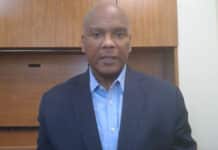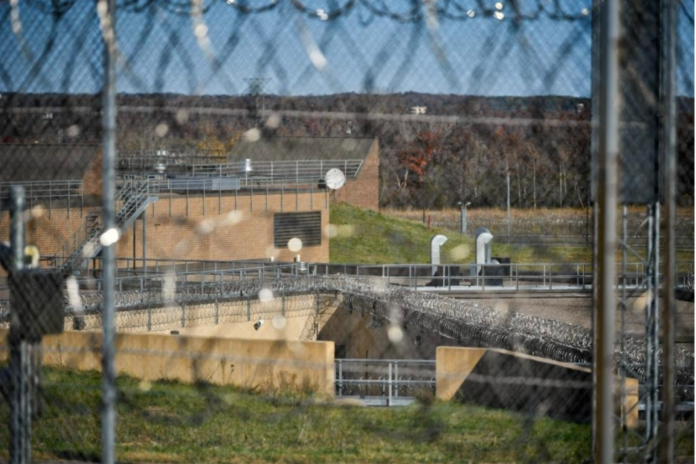A prisoner release plan hatched by a former criminal justice reform lobbyist and current prisoner advocate has been incorporated into a new bill that could soon result in the early release of felony-level prisoners in Minnesota.
The House Public Safety committee will hold a remote hearing on Monday to hear a bill that would give the Minnesota Department of Corrections commissioner the power to release inmates during COVID-19 related peacetime emergencies.
Notification about the Public Safety and Criminal Justice Reform committee hearing was emailed late Friday and the hearing is scheduled to take place on Monday afternoon.
The bill would allow temporary authority to DOC Commissioner Paul Schnell to grant early conditional release to certain offenders.
According to the bill, the powers extended to the commissioner would be granted in order “to protect the health and safety of state correctional employees and inmates as well as the public.”
Alpha News was first to report late last month about a statement posted on the DOC website that said the commissioner was looking to exercise his authority to reduce the prison population in Minnesota, potentially through medical or work release orders for some inmates.
WHO’S BEHIND THE PUSH?
The release plan outlined in the bill, which was largely crafted by and is being pushed by DOC ombudsman Mark Haase, would allow Schnell to place inmates on supervised release if they are within six months of their scheduled release to probation. Schnell would also have authority to determine the necessary eligibility, application and appeals processes to make that happen, according to a post on the ombudsman’s Facebook page.
Haase, who opposed (and lost to) incumbent Hennepin County Attorney Mike Freeman in the 2018 election, has long advocated for criminal justice system reform. Haase was appointed to the ombudsman position by Gov. Tim Walz in December.
Haase previously worked as a lobbyist for the now defunct Minneapolis-based Council on Crime and Justice (CCJ), which abruptly shut down in 2016 following a federal audit that revealed misuse of grant funds.
Through is position with the CCJ, Haase worked on criminal expungement reform, drug sentencing reform and the Ban the Box movement to stop employers from asking about criminal records on initial job applications.
Haase, who was endorsed prior to the 2018 election by the Minnesota DFL, as well as Former US Attorney General Eric Holder and then MN Rep. Ilhan Omar, ran his campaign on a platform of opposing “hardline punishment” for offenders and reforming the cash bail system to allow defendants to be conditionally released without having to pay bail money.
In reference to the bill, Haase was quoted saying that if the bill fails in the legislature, “the governor should take executive action” to get prisoners released.
Walz, who reportedly supports Hasse’s plan, indicated that he would consider exercising executive authority if the legislature does not enact the bill.
Hasse suggested that “if the commissioner thinks it would allow more [prisoners] to be released under the work release program, the governor could suspend certain eligibility criteria,” meaning that prisoners would have to meet a much lower standard than is currently mandated in order to be recommended for release.
WHAT WOULD EARLY RELEASE LOOK LIKE UNDER COVID-19 RESTRICTIONS?
As Alpha News reported last week, a record number of people in Minnesota have filed for unemployment benefits, which is mirrored across the country, and businesses have been ordered closed or have voluntarily shuttered during the COVID-19 outbreak.
Some businesses have already reported that they’re permanently closing and it’s unclear how many others will be able to sustain a prolonged shutdown order.
It’s also been reported that property crimes like business burglaries have increased in the wake of businesses shutting down and people losing jobs. One recent study claimed that out-of-work people commit sixty percent more property crimes in the year after a job loss.
Given the unemployment numbers, stay-at-home orders and non-essential businesses being ordered closed, it’s unclear where Hasse, the commissioner or the governor think felons being placed on work release will get jobs. Adding recently released felons with few job prospects to an already stressed community could be disastrous.
THE BILL AND THE HEARING
If the bill is passed by the legislature, the powers granted to the commissioner would be limited to the timeframe of the peacetime emergency related to COVID-19 and would expire when the declaration of the peacetime public health emergency expires.
The bill would grant the commissioner the authority to conditionally release prisoners who are within 180 days of their scheduled release to probation, and whom the commissioner deems to be at a “low risk to reoffend” and who “do not present a foreseeable risk to public safety.”
Under the provisions of the bill, the commissioner would not be required to notify the public about who is being released. The notification requirement would only apply to victims who have previously requested notification about a specific offender’s release.
The commissioner would not be required to make a final report on his use of the temporary powers to public safety-related legislative committees until six months following the expiration of the peacetime public health emergency. At that time, he would be required to report a timeline as to when temporary powers were exercised and an explanation as to why the exercise of temporary powers was necessary.
The bill specifies that the only data that will be required to be made public are daily inmate population counts for each correctional facility, which are to be posted on the websites of each facility.
The remote hearing, which will be chaired by Rep. Carlos Mariani (DFL-St.Paul), is scheduled to be held from 12:45 to 3 p.m. on Monday, April 6, and may be able to be streamed at this link.
Members of the public who have questions about the bill or who wish to testify may email committee staff member Jamael Lundy at Wnznry.Yhaql@ubhfr.za at least one hour before the hearing is scheduled to begin.
Sponsor this content. You can help ensure that Alpha News can continue to publish important public safety news and information. Email: pbagnpghf@nycunarjfza.pbz.
###
Minnesota Crime Watch & Information publishes news, info and commentary about crime, public safety and livability issues in Minneapolis, the Twin Cities and greater Minnesota

















